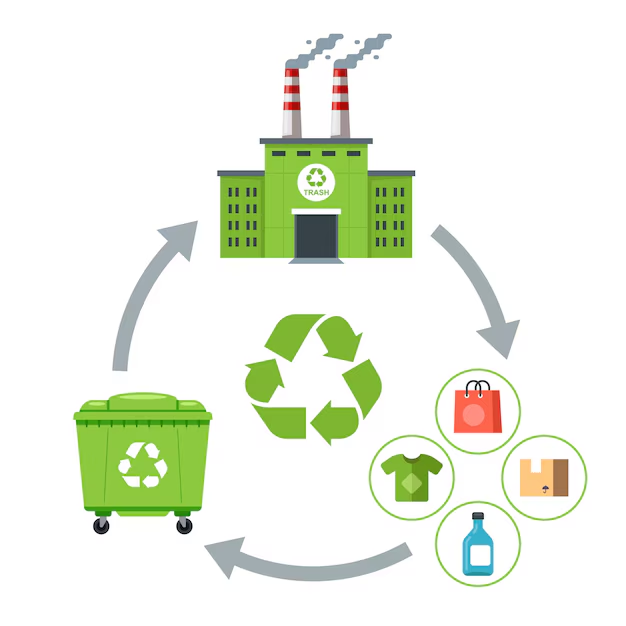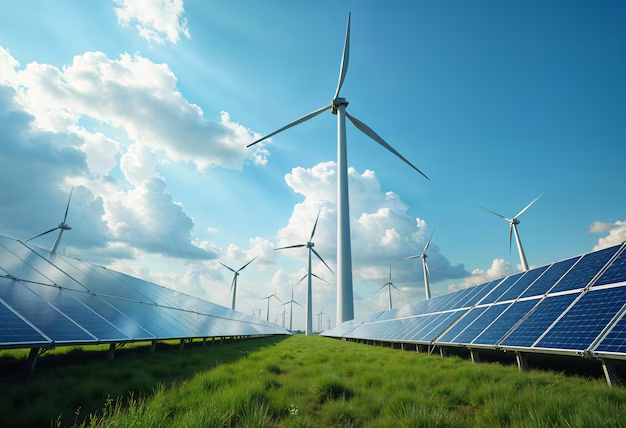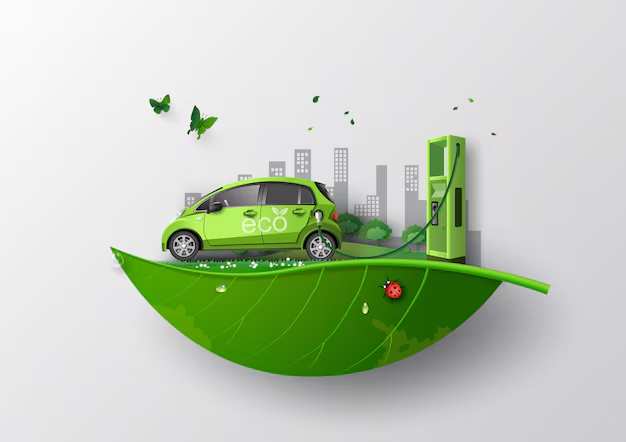In recent years, the planet has faced serious environmental problems like climate change, pollution, deforestation, and growing waste. These issues are becoming worse each day, and our daily choices play a big part in this. As our impact on nature increases, it’s more important than ever for people to take action and help protect the Earth.
One of the best ways to make a positive difference is by embracing eco-friendly lifestyle changes. These include simple actions like reducing plastic use, saving energy, recycling more, and choosing sustainable products. Each small step, when practiced regularly, can reduce harm to the environment and conserve important natural resources.
Eco-friendly lifestyle changes not only help the planet, but they also support personal health and well-being. Living in a cleaner, greener way can improve your quality of life and inspire others to do the same. Together, these changes can lead to a better future for the next generations.

Reduce, Reuse, and Recycle: The Cornerstones of Sustainability
The principles of Reduce, Reuse, and Recycle, also known as the 3 Rs, are key to making eco-friendly lifestyle changes. These simple but powerful actions help lower waste, save resources, and protect the environment. By reducing what we use, reusing items whenever possible, and recycling materials properly, we can make a big difference in our daily lives. Practicing the 3 Rs is a practical way to live more sustainably and lessen our impact on the planet. It’s an easy and effective start to eco-friendly lifestyle changes.
Reducing Waste
One of the most direct ways to adopt an eco-friendly lifestyle is by reducing waste. In a world that produces an overwhelming amount of plastic and non-biodegradable materials, reducing waste is more important than ever. There are several ways to reduce waste:
Opt for reusable items: Choose reusable bags, water bottles, coffee cups, and food containers to avoid single-use plastics.
Purchase products with minimal packaging: Whenever possible, buy items that are not over-packaged or come in eco-friendly packaging.
Buy in bulk: Purchasing products in bulk reduces the need for excess packaging and can often save you money.
Digitize documents: Instead of printing out documents, keep digital copies to save paper.
Practice mindful consumption: Avoid impulse purchases, and think carefully about the products you buy, focusing on what you truly need.

Reusing Products
Reusing products instead of discarding them helps to extend their life cycle and prevent unnecessary waste. Here are some practical ways to reuse:
Repurpose old items: Old clothes can be turned into cleaning rags, glass jars can be used for storage, and furniture can be refurbished instead of thrown away.
Buy second-hand: Purchasing second-hand clothing, furniture, or electronics helps reduce the demand for new production, lowering the carbon footprint associated with manufacturing.
Recycling Responsibly
Recycling is a simple yet effective way to minimize waste and conserve natural resources. Make sure to:
Sort your waste: Separate recyclables such as paper, plastic, and glass from regular trash to ensure proper disposal.
Check recycling guidelines: Different regions have different recycling rules, so it’s important to follow local guidelines to avoid contamination and ensure that materials can be recycled properly.
Sustainable Food Choices: Eating for the Planet
Our food choices affect both our health and the environment. Making small, mindful changes to what we eat can lead to big results for the planet. Choosing a more sustainable diet—such as eating more plant-based foods, buying local produce, and reducing food waste—helps lower our ecological footprint. These eco-friendly lifestyle changes not only support environmental health but also improve personal well-being. By thinking about where our food comes from and how it’s made, we take a strong step toward living more responsibly and protecting natural resources for the future.
Reduce Meat Consumption
Animal agriculture is a leading contributor to greenhouse gas emissions, deforestation, and water consumption. By reducing your meat consumption or adopting a plant-based diet, you can help reduce your environmental impact. Here are some alternatives:
Eat more plant-based foods: Include more fruits, vegetables, grains, legumes, and plant-based proteins into your diet.
Choose sustainably-raised meat: If you do consume meat, opt for sustainably sourced or ethically raised meat, which has a smaller environmental footprint.
Support Local and Organic Farming
Buying locally grown produce helps reduce the environmental costs associated with food transportation. Additionally, organic farming practices often have a lower impact on the environment compared to conventional methods:
Shop at farmers’ markets: Local markets offer fresh, seasonal produce with minimal transportation costs.

Choose organic products: Organic farming avoids the use of harmful chemicals and pesticides, benefiting both the environment and your health.
Minimize Food Waste
Food waste is a significant environmental issue, as wasted food contributes to methane emissions in landfills. You can reduce food waste by:
Planning meals: Create a shopping list and plan meals in advance to buy only what you need.
Store food properly: Make sure to store food at the right temperature to prolong its shelf life.
Compost: Composting food scraps instead of throwing them away helps reduce landfill waste and can enrich your garden.
Energy Conservation: Reducing Your Carbon Footprint
Energy consumption is a major factor in climate change, as most electricity is generated through the burning of fossil fuels. By adopting energy-saving practices, you can reduce your carbon footprint and help mitigate global warming. Here are a few simple yet effective ways to save energy:
Switch to Renewable Energy
If you have the option, switching your home’s energy supply to renewable sources like solar or wind power can make a big difference. Many utility companies now allow customers to choose clean energy plans, helping reduce reliance on fossil fuels. Another option is installing solar panels on your roof, which lets you generate your own electricity and lower your energy bills over time. This change supports a cleaner environment and helps reduce greenhouse gas emissions.

Use Energy-Efficient Appliances
Choosing energy-efficient appliances is another smart way to lower your energy use and support the planet. Items like LED light bulbs, smart thermostats, and energy-saving washing machines use less power and work more efficiently than traditional models. When buying new appliances, look for the Energy Star label, which means the product meets strict energy-saving standards. These small eco-friendly lifestyle changes can add up to significant savings and a smaller carbon footprint over time.
Turn Off and Unplug Devices
Many electronics continue to use power even when turned off, a phenomenon known as “phantom load.” To save energy:
Unplug electronics when not in use, or use a power strip to easily disconnect multiple devices.
Turn off lights when leaving a room, and use natural light whenever possible.
Set your thermostat lower in winter and higher in summer to reduce heating and cooling costs.
Sustainable Transportation: Reducing Your Carbon Emissions
Transportation is one of the largest contributors to greenhouse gas emissions. By making eco-friendly transportation choices, you can reduce your carbon footprint and promote a cleaner environment. Consider these sustainable transportation options:
Use Public Transportation
Taking public transportation, like buses, trains, or subways, is one of the easiest eco-friendly lifestyle changes you can make. It helps reduce the number of private vehicles on the road, which in turn lowers air pollution and cuts down on energy use. If your area has a reliable public transit system, try using it regularly instead of driving your car. It’s a great way to help the environment while also saving on fuel costs and reducing traffic stress.

Carpool or Share Rides
When public transportation isn’t easily available, carpooling is a smart alternative. Sharing rides with coworkers, friends, or neighbors helps cut down on the number of cars on the road. Fewer vehicles mean fewer emissions, less fuel consumption, and reduced traffic congestion. Making carpooling a regular habit is a simple yet effective eco-friendly lifestyle change that benefits both the environment and your wallet.
Choose Electric or Hybrid Vehicles
Switching to an electric vehicle (EV) or a hybrid car is another great way to reduce your environmental impact. EVs produce zero tailpipe emissions and run completely on electricity, while hybrids use a mix of gasoline and electric power to lower fuel use. Though the initial cost may be higher, these vehicles are more energy-efficient and environmentally friendly, making them a smart long-term choice for those committed to eco-friendly lifestyle changes.
Bike or Walk More
For short trips, choosing to bike or walk instead of driving can make a big difference. These are among the most sustainable and eco-friendly ways to travel. Not only do you reduce your carbon footprint, but you also improve your physical health. Making the decision to walk or cycle whenever possible is a healthy, cost-free, and impactful eco-friendly lifestyle change.
Water Conservation: Preserving Our Most Valuable Resource
Water is essential for life, yet it is often taken for granted. Wasting water not only strains local resources but also requires energy for treatment and distribution. By conserving water in your daily life, you can help preserve this precious resource for future generations. Here are some water-saving practices:

Fix Leaks Promptly
One of the easiest eco-friendly lifestyle changes you can make is fixing leaks as soon as they’re noticed. Even a small drip from a faucet or a running toilet can waste gallons of water each day, adding up to a large amount over time. Regularly check your home for leaks in sinks, toilets, and pipes. Repairing them quickly not only conserves water but also helps reduce your utility bills and prevents water damage.
Install Water-Efficient Fixtures
Upgrading to water-efficient fixtures is a smart way to reduce daily water use. Installing low-flow faucets, showerheads, and toilets can significantly cut down on water consumption without reducing comfort or performance. These modern fixtures are specially designed to maintain strong water pressure while using less water. Making this change is one of the most practical eco-friendly lifestyle changes that helps save both water and money over the long term.
Collect Rainwater
Rainwater collection is an easy and sustainable method to reuse natural resources. By setting up a rain barrel in your yard, you can capture rainwater and store it for later use. This water is great for outdoor tasks such as watering your garden, cleaning walkways, or washing your car. Collecting rainwater reduces your dependence on tap water and supports eco-friendly lifestyle changes by making better use of natural rainfall.
Practice Mindful Water Use
Be mindful of your water usage in everyday activities:
Take shorter showers and turn off the tap while brushing your teeth or washing dishes.
Use a dishwasher instead of washing dishes by hand, as dishwashers tend to use less water.
Eco-Friendly Home Improvements
Making eco-friendly upgrades to your home can increase energy efficiency, reduce waste, and lower your environmental impact. Consider these home improvements:
Insulate Your Home
Proper home insulation is one of the most effective eco-friendly lifestyle changes you can make to lower your energy use. Insulating walls, windows, doors, and even your attic helps keep your home warm in the winter and cool in the summer. This reduces the need for constant heating or air conditioning, which can use a lot of energy. Over time, good insulation not only makes your home more comfortable but also lowers utility bills and supports a greener lifestyle.
Choose Sustainable Building Materials
If you are renovating or building, choosing sustainable materials is an important step toward eco-friendly living. Materials like bamboo, reclaimed wood, recycled metal, or eco-friendly concrete have a smaller impact on the environment. They are often long-lasting and produced in a way that uses fewer resources. Making these choices during construction or remodeling is a smart way to support eco-friendly lifestyle changes while creating a stylish and durable space.
Green Your Lawn
Traditional grass lawns need a lot of water, fertilizers, and pesticides to stay green, which can harm the environment. A great eco-friendly lifestyle change is replacing your lawn with drought-tolerant plants, native species, or adopting xeriscaping—a method that requires minimal water and upkeep. These options not only reduce water usage but also create a more natural and sustainable outdoor space that supports local wildlife and helps conserve resources.
Conclusion
Adopting an eco-friendly lifestyle goes beyond a few small adjustments—it involves embracing a mindset focused on sustainability and respect for the environment. Eco-friendly lifestyle changes encourage us to live more consciously, taking actions that help conserve natural resources and reduce our impact on the planet.

Simple steps in areas like reducing waste, choosing sustainable food, saving energy, using greener transportation, conserving water, and improving our homes can all make a meaningful difference. Each change, whether big or small, adds up and supports a cleaner, healthier environment for all.
By making these eco-friendly lifestyle changes, we join a larger global movement to fight climate change, lower pollution levels, and protect the Earth’s biodiversity. In doing so, we not only help the planet but also improve our own quality of life, creating a more sustainable and rewarding future for ourselves and generations to come. Every thoughtful choice today helps shape a better tomorrow.
FAQs
- What are some easy eco-friendly changes I can make at home ?
Some simple eco-friendly changes you can implement at home include switching to energy-efficient light bulbs, reducing water usage by fixing leaks and installing low-flow fixtures, using reusable bags and containers, and recycling properly. Additionally, try to minimize food waste by planning meals and composting leftovers. - How can I reduce my carbon footprint with transportation ?
To reduce your carbon footprint with transportation, consider using public transit, carpooling, or biking instead of driving alone. If possible, switch to an electric or hybrid vehicle, which consumes less fuel and produces fewer emissions. Walking short distances also helps to minimize your environmental impact. - What is the impact of reducing meat consumption on the environment ?
Reducing meat consumption, particularly red meat, can significantly lower your carbon footprint. Animal agriculture is responsible for high greenhouse gas emissions, deforestation, and significant water usage. By eating more plant-based foods, you help reduce these environmental impacts and promote more sustainable farming practices. - How can I save water in my daily routine ?
You can save water by fixing leaks, using water-efficient fixtures like low-flow showerheads and toilets, and reducing water usage in daily tasks. For example, take shorter showers, turn off the tap while brushing your teeth, and only run the dishwasher or washing machine with full loads. Additionally, collecting rainwater for outdoor use can reduce the need for treated water. - What are the benefits of using renewable energy at home ?
Switching to renewable energy sources, like solar or wind power, can significantly reduce your carbon footprint and reliance on fossil fuels. Renewable energy is cleaner, more sustainable, and helps reduce harmful emissions that contribute to climate change. It can also save you money on energy bills in the long run, especially if you generate your own power through solar panels.




